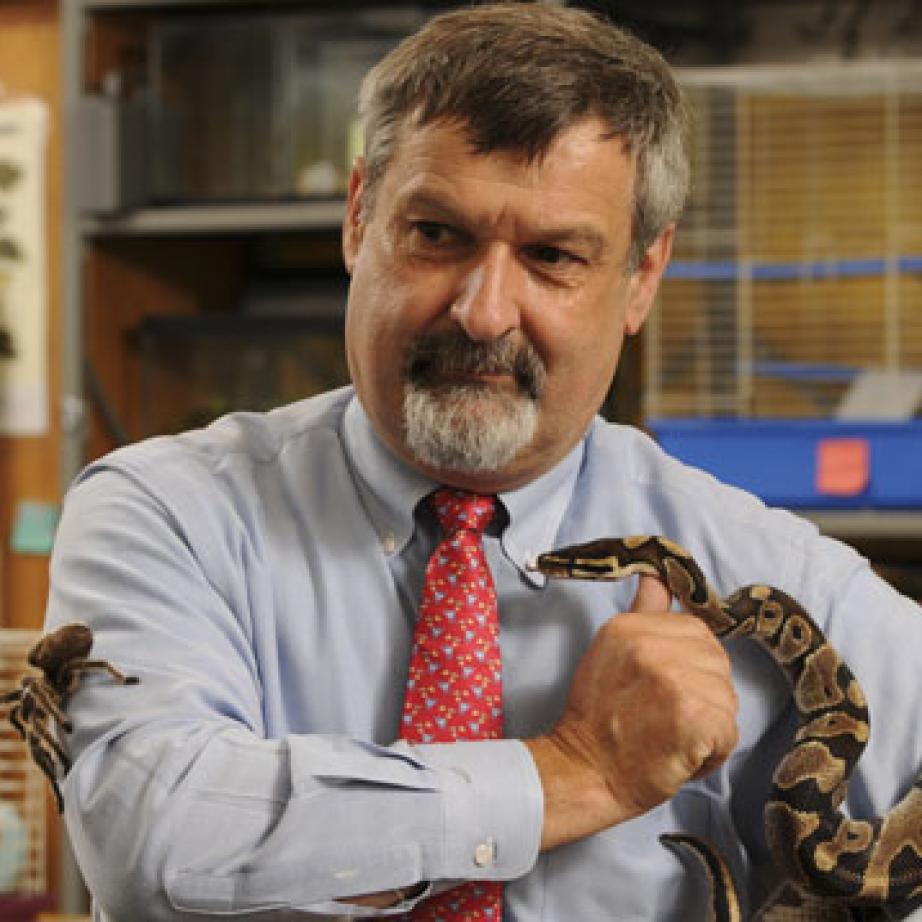Tuesday, Jul 5, 2011
The Graduate-Level Teacher Certification Program allowed Dr. Sven Strnad to spin a web from industry to the classroom.
by Meaghan Haugh
Look how long it is!” students call from the back of the classroom, as they watch one of their classmates wind silk from a cocoon around a pencil.
Another student holds a cocoon up to his ear and shakes it. He marvels at the sound. Spinning his own silk, the Bug Guy looks up frequently to monitor their progress and to remind them that whoever has the longest strand wins a lunch bag and milk. Even a few teachers from down the hall have slipped in to join the giddy excitement. It was the second-to-last day of school for the fifth graders at Millstone River Elementary School in Plainsboro, N.J. A few months earlier, a group of students had hatched both the worms and their own hypotheses about how the worms would react to light and dark conditions. They later shared their findings with their classmates through a PowerPoint presentation.
Their teacher – the Bug Guy – is Dr. Sven Strnad, a former entomologist turned fifth-grade teacher. Strnad and Vickie Gurzau M.A. ’05, an adjunct professor in Rider’s School of Education, co-teach the fifth-grade inclusion class, where they try to present lessons geared toward real-world applications.
“Science is not just a subject but kind of a way of life,” says Strnad, a graduate of Rider’s Graduate-Level Teacher Certification Program (GLTP).
Dozens of cages filled with turtles, gerbils and lizards line the back of the classroom. Strnad and Gurzau employ the animals through their hands-on-driven, integrated curriculum. In Language Arts, for example, students can write about the animals in their stories; in math, they might measure “Linda,” the ball python.
Strnad tries to share his love for science with the rest of the school. Outside their classroom is a tank of flesh-eating beetles. In the spring, their fifth-grade students built a vernal pool in the courtyard for amphibian larvae to grow into frogs, toads or salamanders. Last year, in order to introduce students to various cultures, Strnad and assistant principal Dianne Gallo fried up a batch of mealworms, waxworms and crickets for willing students to taste.
“As a teacher, I do more fun science now than I did back in industry,” says Strnad, who received his nickname from someone who had trouble pronouncing his name. Before he started teaching, Strnad worked for 12 years at American Cyanamid, an agricultural chemical company. During his time there, Strnad oversaw a team that grew bugs, including honey bees and worms, for research and tested products to monitor their effects on the environment.
“I like working with bugs because of their diversity and their beauty,” Strnad said. “I’m interested in how bugs interact with the environment.”
Strnad also had a chance to visit classrooms to teach students about bugs.
“Kids seem to have an interest in bugs, too. It was fun. I enjoyed their curiosity and enthusiasm.
They love hands-on things,” Strnad said. “That experience made me want to explore teaching.”
In 2000, a co-worker told him about Rider’s Graduate-Level Teacher Certification Program, which is designed for career-changers. The timing was perfect – Strnad soon found out that American Cyanamid might be sold.
“We realized it was our chance to do what we want to do,” he said. “It allowed me to explore a career change I wanted to make.”
Strnad found that GLTP not only suited his needs, but the campus was conveniently located on his way home from work. Strnad’s boss allowed him to continue working during the day as he took classes at night. When he began student teaching, his boss let him work at night. GLTP encouraged Strnad to design creative lesson plans. He also learned effective teaching strategies.
When Strnad eventually learned that American Cyanamid would indeed be closed, he was buoyed by the fact that he already had a back-up plan in motion. In July, he lost his job, but in September 2002, he was hired as a full-time teacher.
“The nice thing about teaching is it has a human element,” said Strnad, who has mentored student teachers from Rider’s undergraduate program. “When you teach, you are dealing with kids and parents. To me, that’s much more meaningful. I feel like I’m making a contribution.”

